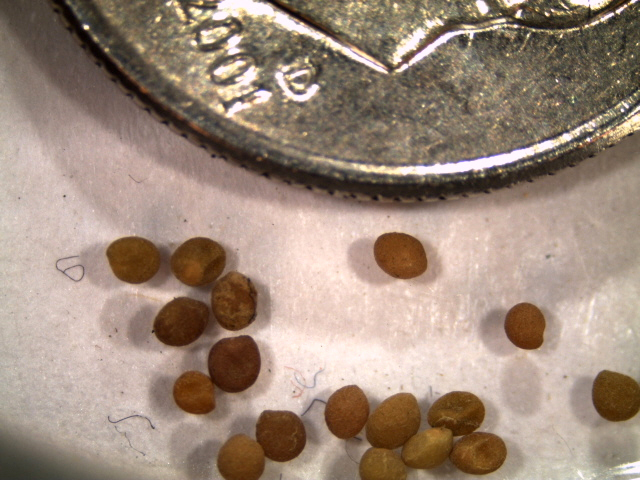ATLANTA — U.S. Customs and Border Protection (CBP) Agriculture Specialists working at Atlanta’s Hartsfield-Jackson International Airport (ATL) intercepted seeds of a parasitic Federal Noxious Weed described as potentially harmful to our nation’s agricultural and horticultural crop industries.

dangerous seeds from entering the
country
A traveler arrived at ATL from Egypt on September 20. CBP Agriculture Detector K9 “Joey” alerted to the person’s luggage and Joey’s handler referred the traveler for a secondary examination. Agriculture detector dogs detect regulated agricultural products in traveler’s luggage. During the secondary examination, CBP agriculture specialists discovered radish and jute seeds along with a grape vine and guava tree intended for planting in a garden. They also found several contaminant seeds mixed in with the radish and jute seeds. CBP submitted these contaminant seeds to U.S. Department of Agriculture identifiers, who determined the seeds to be a species of Cuscuta, a parasitic plant that lacks roots and leaves, and debilitates its host plant to resist viral diseases.
“Our best defense against destructive, invasive plants and pests is to prevent their entry into the United States,” said Carey Davis, CBP Port Director for Port of Atlanta. “The cost to American taxpayers to eradicate a pest, plant or disease once it becomes established in the U.S. can reach into the tens of millions of dollars or more.”
Cuscuta seeds are very small (typically, 1-2 mm long) and can be difficult to detect. Cuscuta plants obtain water and nutrients by attaching to a host plant, causing a reduction in crop yields and possible plant death. Cuscuta is especially destructive to commercially valuable crops, such as flax, alfalfa, beans, and potatoes.
Since the traveler did not have an agriculture permit to import items for planting, CBP seized the seeds and plants to prevent the possible introduction of weeds, plant pests, or diseases.
Importers and travelers can check for restrictions on agricultural products by visiting prohibited items.
CBP agriculture specialists have extensive training and experience in the biological sciences, risk analysis, and imported agriculture inspection techniques. CBP agriculture specialists are the first line of defense in the protection of U.S. agriculture, forest, and livestock industries from exotic destructive plant pests and animal diseases.
On a typical day nationally, CBP agriculture specialists inspect over one million people as well as cargo arriving by air and sea to the United States. They also intercept approximately 4,548 prohibited meat, plant materials, or animal products, and discover more than 470 agriculture pests and diseases that could have detrimental effects to our nation’s agriculture resources, food production, and animal and human health.
To read more about the CBP agriculture mission click CBP Agriculture.
CBP routinely conducts inspection operations on arriving and departing international flights and intercepts narcotics, weapons, unreported currency, prohibited agriculture products, and other illicit items.
To read more about CBP does on an average day, click on CBP Snapshot. Visit www.cbp.gov for more information on the nation’s border security and enforcement agency.


